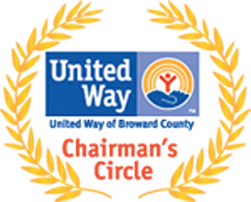Credit Unions vs. Banks
In a world where credit unions and banks both work tirelessly to help citizens, does one do more good than the other? These two powerhouses face off head to head to see who wins when they’re pitted against each other.
Banks offer the business savvy and polish of corporate enterprises – selecting services that profit shareholders while serving the populace at large. Credit unions are the grassroots, hometown hero – supporting and serving members in Smallville without focusing on profit margins.
Corporate banks use every utility available to help citizens – so you have widespread national ATM access and the latest in online and mobile banking. Credit unions help whenever someone in the community calls out – as a result, ATM access, online and mobile banking service the community and expands as needed.
Corporate banks can be tougher too – minimum balance requirements and stricter lending standards mean banks expect citizens to step up a bit. Whereas credit unions try to help even the weakest in the community and lift them up – they have low balance requirements and more flexible loan standards.
But the battle for supremacy really heats up when it comes to rates. While banks may triumph with the number of utilities in their belt, credit unions help where help is needed most. Credit unions lift up the people, granting lower interest rates to citizens so they pay less to borrow.
Rates on credit cards and loans are lower – so people can escape dark times to enjoy better, brighter metropolis for all. Just a 0.02 percent different on a 30-year mortgage lowers monthly payments and total interest paid, and better serves everyday workers.
In a time where so many are falling victim, credit unions offer more safety and protection even as citizens get into situations with higher risk. And if the sky darkens once more with an economic storm, credit unions answer the call.
As people work to pull themselves into the light, credit unions help, support and carry them forward. Better rates on investments mean that anyone in the community can work to build a better tomorrow for themselves. Higher rates mean that instead of struggling in the gritty underworld day after day, it’s easier for everyday citizens to grow, flourish and find success even in an uncertain financial world.
Consolidated Credit… When Debt is the Problem We’re the Solution.
Choose the right institution for each specific need.
It’s good to note that you don’t have to be wholly on the side of banks or credit unions – you can trust in both and accept assistance from each when it’s the right choice in that situation. People are often overly loyal to their banking institution, so they miss out on better opportunities that they may have by shopping around for each financial service they need.
So let’s say you’re a member of a local credit union, so you have a bank account and standard savings account with that institution. However, when you go to buy a home, that credit union may or may not have the best rates on a mortgage. You have to shop around to compare the loans and interest rates that various institutions may offer. This way, you get the best financing at the lowest rate possible.
It’s good to note here that when you shop around for a loan like a mortgage or car loan, you can apply to multiple lenders within a short period of time without negatively impacting your credit score. In some cases with multiple credit applications over a short time – like if you’re shopping for credit cards – each application generates a credit inquiry. Too many of these inquiries within a six month period can reflect negatively on your credit and reduce your credit score.
However, multiple mortgage and auto loan applications with a short span of time are grouped together as one inquiry. This allows you to shop around effectively, so you can compare rates and terms from multiple banks, credit unions and other loan servicers to see who provides the best option for financing.
Keep in mind that there is nothing that prevents you from banking at different places at the same time. So, for instance, if you have a cash-back rewards credit card through a particular bank, they may provide additional incentives for direct depositing the money into a bank account with them. In this case, you may want to open a savings or Money Market Account with that bank, even though your main bank and savings account are with a credit union.
Additionally, when it comes to saving and investment tools like Money Market Accounts (MMAs) and CDs, you always want to go with the financial institution that will provide the highest rate of return or yield on the money you invest. The higher the APY (annual percentage yield) and the faster the rate compounds, the more your money will grow. So an investment that compounds weekly at 2% is the better option for your money over an investment that compounds monthly at the same 2% rate.
By being open to using different financial institution instead of coming down staunchly on the side of credit unions or banks, you improve your ability to manage your money and save effectively. So don’t limit yourself and remember to shop around anytime you need a new financing or investing tool. Just because your bank was the best option in one circumstance, doesn’t mean they’ll always provide the best rates. It’s worth it to shop around.

